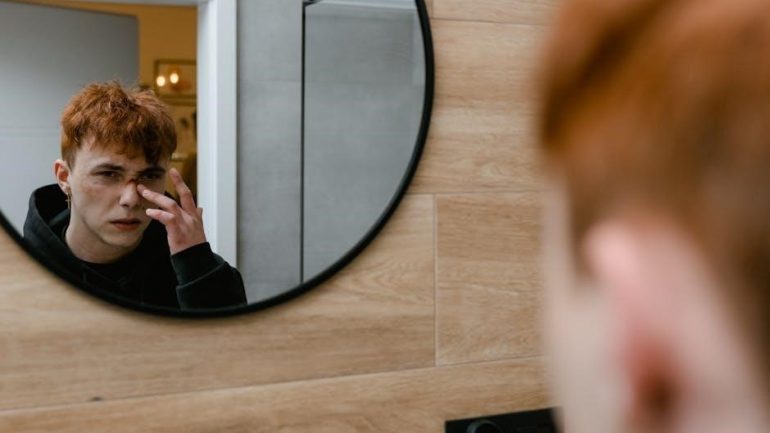The 7 Habits of Highly Effective Teens by Sean Covey offers a roadmap for teenagers to navigate life’s challenges with confidence and purpose․ It provides practical advice on self-improvement‚ goal-setting‚ and building strong relationships‚ helping teens become more effective in all areas of life‚ now updated for the digital age with over 3 million copies sold worldwide․
Overview of the Book
The 7 Habits of Highly Effective Teens by Sean Covey is a guide tailored for teenagers to navigate life’s challenges with confidence and purpose․ Adapted from Stephen Covey’s The 7 Habits of Highly Effective People‚ this book focuses on seven essential principles to help teens build self-esteem‚ improve relationships‚ and make better decisions․ It addresses modern issues like peer pressure‚ social media‚ and academic stress‚ offering practical strategies to overcome them․ With over 3 million copies sold‚ the book has become a trusted resource for teens seeking to master habits that promote personal and social effectiveness in the digital age․
Why the 7 Habits Matter for Teenagers
The 7 Habits are crucial for teenagers as they provide a framework to navigate the challenges of adolescence with confidence and resilience․ These habits help teens develop self-esteem‚ improve relationships‚ and make thoughtful decisions․ By fostering proactive behavior‚ goal-setting‚ and empathy‚ the habits empower young people to take control of their lives and build strong character․ In a world filled with peer pressure and digital distractions‚ these principles guide teens toward personal growth‚ helping them manage stress and achieve their potential․ The habits are timeless and practical‚ offering real-life strategies to enhance effectiveness in all areas of life․
Relevance in the Digital Age
The 7 Habits remain highly relevant in today’s digital world‚ offering timeless principles to help teenagers navigate modern challenges․ With the rise of social media‚ online learning‚ and digital distractions‚ the habits provide practical tools to stay focused‚ manage time‚ and maintain balance․ By fostering self-awareness‚ proactive behavior‚ and strong relationships‚ the habits empower teens to thrive in a fast-paced‚ tech-driven environment․ Updated for the digital age‚ this guide equips young people with essential skills to handle stress‚ avoid distractions‚ and build resilience‚ ensuring long-term success and personal growth in a constantly evolving world․

Habit 1: Be Proactive
Be Proactive empowers teens to take responsibility for their choices and actions‚ focusing on what they can control rather than reacting to circumstances․ This habit encourages self-awareness and initiative‚ helping teenagers develop a mindset of personal accountability and confidence in shaping their own success․
Understanding Proactivity
Proactivity is about taking initiative and being responsible for your choices and actions․ It involves focusing on what you can control rather than reacting to circumstances․ By understanding your Circle of Influence‚ you learn to prioritize efforts on things that matter most․ This mindset helps teenagers develop self-awareness‚ accountability‚ and confidence․ Being proactive means choosing responses wisely‚ rather than simply reacting emotionally․ It’s a foundation for personal growth and effectiveness‚ encouraging teens to take charge of their lives and decisions․ This habit fosters resilience and empowers young people to create positive outcomes in challenging situations․
Key Concepts: Circle of Influence and Control
The Circle of Influence and Circle of Control are essential concepts in Habit 1․ The Circle of Influence includes things you can affect‚ while the Circle of Control contains things you can directly influence․ Focusing on your Circle of Influence helps you prioritize efforts effectively‚ reducing stress over things you can’t change․ For teenagers‚ understanding these circles means taking responsibility for choices and actions‚ fostering a proactive mindset․ By focusing on what you can control‚ you build confidence‚ reduce anxiety‚ and make intentional decisions that align with your goals and values․
Practical Applications for Teenagers
Being proactive empowers teenagers to take charge of their choices and reactions․ By focusing on their Circle of Influence‚ teens can prioritize actions that align with their values and goals․ This means making intentional decisions‚ such as choosing positive friendships‚ managing time effectively‚ and responding thoughtfully to challenges․ Proactive behavior helps teens avoid blaming circumstances and instead solve problems constructively․ By taking initiative in school‚ relationships‚ and personal growth‚ they build confidence and resilience‚ setting a foundation for long-term success and happiness․
Benefits of Being Proactive
Being proactive fosters personal growth and confidence in teenagers․ By taking responsibility for their choices and actions‚ teens develop a stronger sense of self-worth and resilience․ Proactive behavior helps them avoid victim mentality‚ allowing them to focus on solutions rather than problems; This mindset improves decision-making‚ enabling teens to navigate challenges like peer pressure and academic stress more effectively․ Over time‚ proactivity builds a foundation for long-term success‚ empowering teens to achieve their goals and create a meaningful‚ purpose-driven life․ It also enhances relationships and overall well-being‚ making it a cornerstone of effective teenage development․

Habit 2: Begin with the End in Mind
This habit encourages teens to set clear‚ personal goals and create a mission statement․ It helps guide decisions and actions‚ ensuring they align with their values and future vision‚ fostering purpose and direction in life․
Setting Personal Goals
Setting personal goals is a cornerstone of Habit 2‚ helping teens clarify their vision and direction․ By defining short- and long-term objectives‚ they can align actions with values‚ fostering purpose․ This habit encourages creating a personal mission statement to guide decisions‚ ensuring they focus on what truly matters․ Breaking goals into manageable steps makes them achievable‚ while regular reflection helps track progress․ This practice empowers teens to overcome challenges‚ stay motivated‚ and build a strong foundation for future success‚ enabling them to live intentionally and reach their full potential․
Creating a Personal Mission Statement
Creating a personal mission statement is a powerful way for teens to define their core values‚ beliefs‚ and long-term goals․ It serves as a guiding light‚ helping them stay focused on what truly matters․ By reflecting on their passions‚ strengths‚ and aspirations‚ teens can craft a statement that reflects their unique identity․ For example‚ “I stand for honesty‚ kindness‚ and excellence in all I do․” This statement becomes a personal compass‚ empowering them to make decisions aligned with their values and pursue their vision with clarity and confidence․
Long-Term Vision for Teenagers
Developing a long-term vision helps teenagers create a clear roadmap for their future․ By imagining their ideal life‚ they can set meaningful goals and stay focused on what truly matters․ This vision acts as a compass‚ guiding decisions and actions toward a purposeful direction․ Encouraging teens to think about their aspirations‚ values‚ and contributions empowers them to align their daily efforts with their bigger picture․ A well-defined vision not only inspires motivation but also equips them to overcome obstacles and stay committed to their goals‚ fostering resilience and direction in their journey toward success․
How to Prioritize Goals Effectively
To prioritize goals effectively‚ teenagers should start by identifying what is truly important and urgent․ Using the Time Management Matrix can help categorize tasks into four quadrants: urgent and important‚ important but not urgent‚ urgent but not important‚ and neither․ By focusing on the second quadrant‚ teens can concentrate on long-term goals that align with their values․ Additionally‚ breaking down large goals into smaller‚ manageable steps makes them less overwhelming and easier to achieve․ Regularly reviewing and adjusting priorities ensures they stay on track․ This approach helps teens maintain focus‚ reduce stress‚ and achieve their objectives more efficiently․
Habit 3: Put First Things First
Teens can master goal prioritization by focusing on what’s most important and urgent․ Use the Time Management Matrix to categorize tasks into four quadrants: urgent and important‚ important but not urgent‚ urgent but not important‚ and neither․ Prioritize tasks in the second quadrant‚ aligning with long-term goals․ Break large goals into smaller‚ manageable steps to avoid overwhelm․ Regularly review and adjust priorities to stay aligned with personal values․ This approach helps teens maintain focus‚ reduce stress‚ and achieve their objectives efficiently while building a strong foundation for future success․
Time Management for Teenagers
Effective time management is crucial for teenagers to balance school‚ relationships‚ and personal growth․ By prioritizing tasks using the Time Management Matrix‚ teens can focus on what’s truly important․ This tool categorizes activities into four quadrants: urgent and important‚ important but not urgent‚ urgent but not important‚ and neither․ Teens should concentrate on tasks that align with their long-term goals‚ delegate or minimize less critical activities‚ and eliminate time-wasting habits․ Breaking tasks into smaller‚ manageable steps and using calendars or planners can enhance productivity․ Regularly reviewing priorities ensures alignment with personal values‚ helping teens stay organized‚ reduce stress‚ and achieve their objectives efficiently․ This habit fosters discipline‚ accountability‚ and a clear sense of direction․
Using the Time Management Matrix
The Time Management Matrix helps teenagers prioritize tasks by categorizing them into four quadrants: urgent and important‚ important but not urgent‚ urgent but not important‚ and neither․ This tool enables teens to focus on what truly matters‚ like studying for exams or planning for the future‚ while minimizing time spent on less critical activities․ By organizing tasks this way‚ teens can manage their time more effectively‚ reduce stress‚ and achieve their goals․ Regular use of the matrix fosters discipline and ensures that time is spent on activities that align with personal priorities and long-term objectives‚ promoting productivity and balance in their busy lives․
Avoiding Procrastination
Procrastination is a common obstacle for teenagers‚ but it can be overcome by adopting proactive habits․ Sean Covey suggests breaking tasks into smaller‚ manageable steps to reduce overwhelm and increase motivation․ Setting clear‚ achievable goals and using a planner or schedule can also help teens stay on track․ Additionally‚ practicing self-discipline and understanding the underlying reasons for procrastination‚ such as fear of failure or perfectionism‚ can empower teens to take action․ By addressing procrastination head-on‚ teenagers can build confidence‚ improve productivity‚ and achieve their goals more effectively‚ fostering a sense of accomplishment and self-control in their daily lives․
Practical Tips for Prioritizing Tasks
Sean Covey’s book provides actionable strategies for prioritizing tasks effectively․ Using the Time Management Matrix‚ teens can categorize tasks into four quadrants: urgent and important‚ important but not urgent‚ urgent but not important‚ and neither․ Focus on Quadrant 2 for long-term goals and relationships․ Use a planner or digital app to list and prioritize tasks‚ focusing on high-impact activities first․ Break large tasks into smaller‚ manageable steps to avoid overwhelm․ Set clear deadlines and review priorities regularly to stay aligned with goals․ This approach helps teens manage time wisely‚ reduce stress‚ and achieve greater productivity and success․

Habit 4: Think Win-Win
Think Win-Win encourages teens to seek mutual benefit in all interactions‚ fostering positive relationships and collaboration․ By valuing others’ needs and showing empathy‚ teens can build trust and achieve success together while maintaining their own integrity and goals․ This habit promotes kindness‚ respect‚ and long-term success in personal and social circles․
Building Positive Relationships
Building positive relationships is a cornerstone of the Think Win-Win habit․ Teens learn to understand and value others’ perspectives‚ fostering empathy and mutual respect․ By prioritizing kindness‚ active listening‚ and open communication‚ they create supportive and inclusive environments․ This approach helps teens navigate conflicts‚ strengthen friendships‚ and build trust․ Positive relationships are rooted in fairness‚ loyalty‚ and shared success‚ enabling teens to collaborate effectively and grow together․ Cultivating these skills early helps teens develop lasting‚ meaningful connections that enrich their lives and the lives of those around them․
Understanding Win-Win Scenarios
Win-Win scenarios involve creating situations where everyone benefits‚ fostering mutual success and satisfaction․ This mindset encourages teens to seek solutions that satisfy all parties‚ rather than focusing solely on personal gain․ By understanding others’ needs and perspectives‚ teens can build trust and strengthen relationships․ Win-Win isn’t about compromise but finding creative solutions that benefit everyone․ This approach promotes collaboration‚ respect‚ and long-term success in personal and professional interactions‚ helping teens develop a reputation as fair and empathetic individuals who value harmony and shared achievements․
Importance of Empathy and Kindness
Empathy and kindness are essential for building strong‚ positive relationships and fostering a supportive environment․ By understanding and valuing others’ feelings‚ teens can communicate more effectively and resolve conflicts constructively․ Kindness promotes trust and respect‚ while empathy helps teens see situations from different perspectives‚ encouraging compassion and inclusivity․ These qualities not only enhance personal growth but also create a positive social atmosphere‚ making it easier to collaborate and achieve shared goals․ Practicing empathy and kindness helps teens become well-rounded‚ thoughtful individuals who contribute meaningfully to their communities and relationships․
How to Apply Win-Win in Daily Life
Applying the Win-Win habit in daily life involves seeking solutions where everyone benefits․ For teenagers‚ this means fostering cooperation in school projects‚ sports‚ or family decisions․ Encourage open communication‚ listen actively‚ and compromise to find mutually satisfying outcomes․ For example‚ if disagreeing with a friend‚ try to understand their perspective and suggest a solution that works for both․ Small acts of kindness‚ like offering help or a smile‚ also create a Win-Win environment․ By prioritizing respect and fairness‚ teens can build stronger relationships and achieve shared success‚ making it a habit that benefits everyone involved․

Habit 5: Seek First to Understand‚ Then to be Understood
This habit emphasizes the importance of empathy and effective communication․ By listening actively and seeking to understand others before expressing oneself‚ teenagers can build stronger‚ more meaningful relationships and resolve conflicts more effectively․ This approach fosters mutual respect and trust‚ creating a foundation for open and honest dialogue in both personal and social interactions․
Effective Communication Skills
Effective communication is a cornerstone of Habit 5‚ enabling teenagers to connect deeply with others․ By actively listening and asking thoughtful questions‚ teens can better understand others’ perspectives․ This approach fosters empathy and helps resolve conflicts by addressing root causes rather than surface-level issues․ Learning to communicate effectively also involves expressing oneself clearly and respectfully‚ ensuring messages are received as intended․ These skills empower teens to navigate relationships with confidence‚ build trust‚ and strengthen bonds․ Mastering communication enhances both personal and social interactions‚ leading to stronger‚ more meaningful connections in all areas of life;
Active Listening for Teenagers
Active listening is a powerful skill that helps teenagers deeply understand others․ It involves fully focusing on the speaker‚ avoiding interruptions‚ and practicing empathy․ By truly hearing someone out‚ teens can gain insights into their feelings and perspectives‚ fostering stronger connections․ This habit encourages patience and openness‚ allowing for more meaningful conversations․ Active listening also helps resolve conflicts by addressing root issues rather than surface-level arguments․ By mastering this skill‚ teenagers can build trust and understanding in their relationships‚ aligning with Habit 5: Seek First to Understand‚ Then to Be Understood․
Overcoming Peer Pressure
Peer pressure can be a significant challenge for teenagers‚ often leading to decisions that contradict personal values․ The 7 Habits provide a framework to resist such pressures by fostering self-awareness and confidence․ By understanding their own beliefs and goals‚ teens can make proactive choices that align with their principles rather than succumbing to societal expectations․ Habit 5‚ Seek First to Understand‚ Then to Be Understood‚ encourages empathy and critical thinking‚ helping teens navigate situations where peer pressure arises․ This habit empowers them to stand firm in their convictions while maintaining healthy relationships․
How to Build Stronger Relationships
Building stronger relationships is rooted in understanding and empathy․ Habit 5‚ Seek First to Understand‚ Then to Be Understood‚ encourages teens to listen deeply and value others’ perspectives․ By doing so‚ they foster mutual respect and trust․ This habit helps teens navigate conflicts and misunderstandings‚ creating a foundation for lasting connections․ Additionally‚ aligning interactions with personal values ensures relationships are meaningful and authentic․ Through active listening and open communication‚ teens can cultivate stronger‚ more supportive relationships that enrich their lives and the lives of others․

Habit 6: Synergize
Synergize is about valuing teamwork and collaboration‚ where diverse perspectives combine to achieve greater results․ It empowers teens to work effectively in groups‚ fostering creativity and unity;
Power of Teamwork and Collaboration
Synergy emphasizes the importance of teamwork and collaboration‚ where the collective effort surpasses individual achievements․ By valuing diverse perspectives and combining strengths‚ teens can achieve greater results․ This habit encourages listening‚ sharing ideas‚ and building on others’ input‚ fostering creativity and unity․ Synergy is not just about working together but creating something new and better through cooperation․ It teaches teens to embrace differences and leverage them for mutual success‚ leading to stronger relationships and a sense of accomplishment․ This collaborative approach is essential in all areas of life‚ from school projects to personal growth․
Valuing Diversity and Different Perspectives
Valuing diversity and different perspectives is crucial for fostering synergy․ By embracing varied viewpoints‚ teens can gain deeper insights and create innovative solutions․ This habit encourages open-mindedness‚ active listening‚ and respect for others’ opinions․ When individuals bring unique experiences and ideas to the table‚ collaboration becomes richer and more meaningful․ Understanding and appreciating diversity strengthens relationships and builds a foundation of mutual respect․ It teaches teens to see differences as opportunities for growth rather than obstacles‚ leading to more harmonious and effective interactions in all areas of life․
How to Work Effectively in Groups
Working effectively in groups requires collaboration‚ communication‚ and respect for others’ ideas․ Teens can achieve synergy by combining diverse strengths and perspectives‚ leading to better outcomes․ Encourage active listening‚ clear expression of thoughts‚ and open-mindedness․ Assign roles to ensure accountability and balance contributions․ Embrace disagreements as opportunities for growth and consensus-building․ By valuing each member’s input‚ groups foster creativity‚ problem-solving‚ and teamwork․ This approach helps teens build stronger relationships and achieve shared goals more efficiently‚ while also developing essential life skills for future success․
Benefits of Synergy in Teenage Life
Synergy in teenage life fosters creativity‚ enhances problem-solving‚ and strengthens relationships․ By valuing diverse perspectives‚ teens can achieve outcomes greater than individual efforts․ It promotes mutual respect‚ builds confidence‚ and teaches the importance of teamwork․ Synergy helps teens collaborate effectively in school projects‚ sports‚ or social activities‚ leading to shared success․ It encourages open communication and empathy‚ preparing them for future collaborations․ Through synergy‚ teens learn to appreciate differences and work together seamlessly‚ creating a foundation for lifelong interpersonal and professional success․

Habit 7: Sharpen the Saw
Habit 7 focuses on self-care and renewal in four key areas: physical‚ social/emotional‚ mental‚ and spiritual․ Regular renewal enhances energy‚ resilience‚ and the ability to live the other habits effectively․
Self-Care for Teenagers
Self-care is essential for teenagers to maintain balance and well-being in their busy lives․ It involves nurturing the physical‚ social/emotional‚ mental‚ and spiritual dimensions․ Regular exercise‚ healthy eating‚ and sufficient sleep are vital for physical health․ Social/emotional well-being can be strengthened through meaningful relationships and emotional self-awareness․ Mental renewal involves activities like reading or reflection‚ while spiritual growth can come from meditation or connecting with personal values․ By prioritizing self-care‚ teens can recharge‚ reduce stress‚ and build resilience‚ enabling them to perform better in school‚ relationships‚ and personal goals․
Renewing the Four Dimensions of Life
Renewing the four dimensions of life—physical‚ social/emotional‚ mental‚ and spiritual—is crucial for maintaining balance and energy․ Physically‚ this means exercising‚ eating well‚ and resting․ Social/emotional renewal involves nurturing relationships and practicing empathy․ Mentally‚ it includes learning‚ reflection‚ and creativity․ Spiritually‚ it’s about connecting to personal values or a higher purpose․ Regular renewal in these areas helps teens recharge‚ reduce stress‚ and sustain long-term effectiveness‚ ensuring they can thrive in all aspects of life while staying aligned with their goals and values․
Physical‚ Social/Emotional‚ Mental‚ and Spiritual Renewal
Physical renewal involves caring for your body through exercise‚ healthy eating‚ and adequate sleep․ Social/emotional renewal is about nurturing relationships‚ practicing empathy‚ and expressing gratitude․ Mental renewal includes activities like reading‚ learning new skills‚ or reflecting on experiences․ Spiritual renewal focuses on connecting with personal values‚ meditating‚ or spending time in nature․ By regularly renewing these four dimensions‚ teens can maintain balance‚ reduce stress‚ and enhance their overall well-being‚ ensuring they have the energy and resilience to pursue their goals effectively․
Why Self-Care is Essential for Effectiveness
Self-care is crucial for maintaining energy‚ focus‚ and resilience‚ enabling teens to perform at their best․ By prioritizing physical‚ social/emotional‚ mental‚ and spiritual renewal‚ teens can avoid burnout and sustain long-term effectiveness․ Physical self-care ensures bodily health‚ while social/emotional care strengthens relationships and emotional stability․ Mental renewal sharpens focus and clarity‚ and spiritual renewal connects teens to their core values and purpose․ Neglecting self-care can lead to exhaustion and decreased productivity‚ making it vital to recharge regularly to achieve balance and success in all areas of life․
The 7 Habits of Highly Effective Teens empower teenagers to build self-esteem‚ improve relationships‚ and make wise decisions‚ offering a lifelong guide to success and fulfillment in a fast-paced world․
Recap of the 7 Habits
The 7 Habits of Highly Effective Teens are timeless principles that guide teenagers toward personal growth and success․ Habit 1: Be Proactive emphasizes taking responsibility for one’s life․ Habit 2: Begin with the End in Mind encourages setting clear‚ personal goals․ Habit 3: Put First Things First teaches effective time management․ Habit 4: Think Win-Win fosters positive relationships․ Habit 5: Seek First to Understand‚ Then to be Understood promotes empathy․ Habit 6: Synergize highlights teamwork’s power․ Habit 7: Sharpen the Saw focuses on self-care․ Together‚ these habits empower teens to thrive in all areas of life․
How to Sustain the Habits Long-Term
Sustaining the 7 Habits requires consistent practice and a commitment to personal growth․ Start by setting reminders and tracking progress in a journal or habit tracker․ Regular reflection helps identify areas for improvement․ Surround yourself with supportive friends or mentors who encourage positive behavior․ Celebrate small victories to stay motivated․ Over time‚ these habits become second nature‚ empowering teens to maintain effectiveness in the long term while adapting to life’s challenges․
The Impact of the 7 Habits on Teenage Success

The 7 Habits have a profound impact on teenage success by fostering personal growth‚ improving relationships‚ and enhancing decision-making skills․ Teens who adopt these habits gain confidence‚ develop a stronger sense of purpose‚ and learn to navigate challenges effectively․ By focusing on self-mastery and collaboration‚ they build resilience and achieve their goals․ The habits also promote emotional intelligence and empathy‚ crucial for forming meaningful connections․ Ultimately‚ these principles create a foundation for long-term success‚ helping teens thrive academically‚ socially‚ and personally while preparing them for future challenges in an ever-changing world․
Final Thoughts and Encouragement
Embracing the 7 Habits empowers teens to take charge of their lives and unlock their full potential․ These timeless principles guide them to build strong relationships‚ achieve their goals‚ and develop self-confidence․ By practicing these habits‚ teens can overcome challenges‚ make wise decisions‚ and grow into capable‚ compassionate individuals․ Remember‚ success is a journey‚ not a destination․ Start small‚ stay consistent‚ and watch how these habits transform your life․ With determination and persistence‚ you can create a brighter future and inspire others to do the same․ The power to succeed is within you—seize it today!




